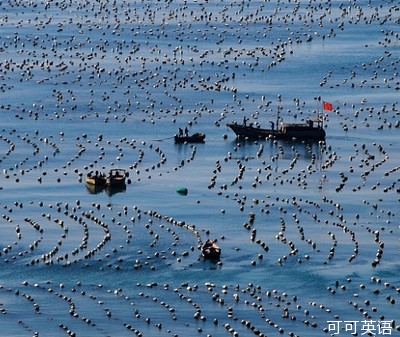When it comes to mussels, bigger isn't necessarily better. Tiny fibers called byssals enable mussels—the shellfish kind—to anchor themselves to coastlines despite crashing ocean waves.
谈到贻贝,并不是越大越好。除了海浪的拍打,贻贝能在海岸线抛锚还要靠一种叫做足丝的微小纤维。
But new research shows that the attachment fibers weaken in warm water. A temperature rise of 15 degrees Fahrenheit lessens fiber strength by 60 percent, possibly causing them to fail completely. As climate change raises ocean temperatures, mussels may be forced to cooler waters.

但最新的研究显示,温水会弱化这种足丝纤维。温度每上升15摄氏度,纤维的强度就减弱60%,这可能导致贻贝登不了岸。随着气候的变化,海洋温度升高,贻贝可能要被迫迁往水温较低的海域。
Emily Carrington of the University of Washington presented the research at the meeting of the American Association for the Advancement of Science in Boston:
来自华盛顿大学的艾米丽·卡灵顿在波士顿召开的美国科学促进会会议上展示了这项研究:
"Researchers have dissected mussel beds and found, I think, upwards of 100 different species. So if the mussels go it really changes that community.
“研究人员仔细观察了贻贝群,发现了100种以上的物种。因此如果贻贝消失了,肯定会改变海洋生物群落。”
"We also eat mussels and so there's applications in aquaculture. The way they grow mussels, is the mussels have to remain attached to the ropes on their long lines. So if the mussels fall off before the farmers return to reap their harvest, then they've lost a lot of money."
“我们仍然要消费贻贝,这里有一些水产养殖方面的应用程序。养殖贻贝的方式就是将它们系在绳索上排成长队。如果贻贝在农民们回来收获之前脱落,那么农民就损失惨重了。”













